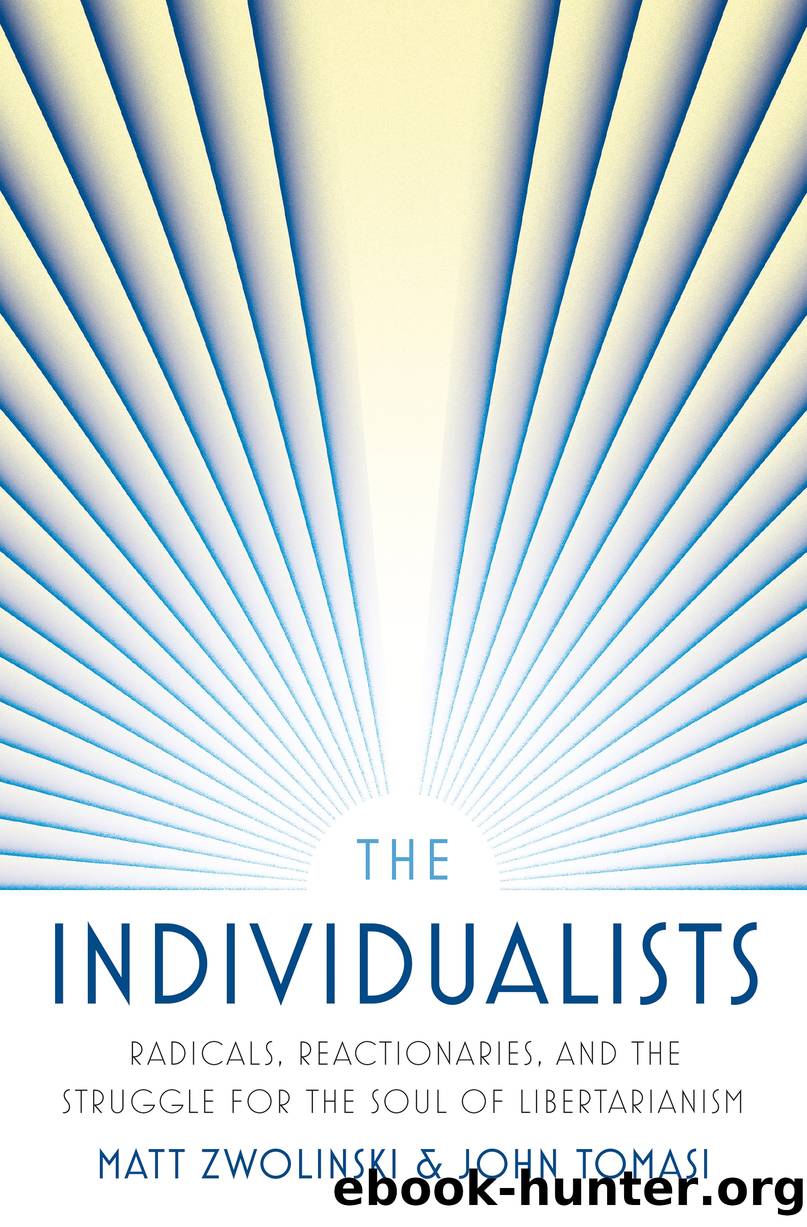The Individualists by Matt Zwolinski;John Tomasi;

Author:Matt Zwolinski;John Tomasi;
Language: eng
Format: epub
Publisher: Princeton University Press
Published: 2022-12-02T00:00:00+00:00
Garrisonâs abolitionism arose from the uncompromising primacy of God-given law over government-given law.
In an 1833 address in Philadelphia, Garrison argued that every individual has a God-given, inalienable right to liberty. âTo invade [that liberty] is to usurp the prerogative of Jehovah.â Why? Because God created us as self-owners: âEvery man has a right to his own bodyâto the products of his own laborâto the protection of lawâand to the common advantages of society.â15 As Garrison explained elsewhere, slavery was a sin precisely because it rebelled against God: the institutions of slavery destroyed the God-given agency of the enslaved. God meant every individual to live and love freely, and to fully enjoy the fruits of their own labor. Lewis Perry describes the Garrisonian outlook: âWhen a man presumed to claim he owned another man, he competed with God for control and government over mankind. He tried to make his slave accountable to himself instead of to God.â16 Since it was wrong for anyone to financially benefit from slavery, it would be doubly wrong for a slaveholder to receive financial compensation as part of a settlement to end that unjust arrangement. According to Garrison, âfreeing the slave is not depriving them of their property, but of restoring it to its rightful owner; it is not wronging the master, but righting the slaveârestoring him to himself.â As a result: âif compensation is to be given at all, it should be given to the outraged and guiltless slaves, and not to those who have plundered and abused them.â17 As Perry summarizes Garrisonâs position: âSlavery, government, and violence were considered identical in principle. All were sinful invasions of Godâs prerogatives; all tried to set one man between another man and his rightful ruler.â18
In 1833, Garrison joined with Arthur Tappan and Frederick Douglass to found the American Anti-Slavery Society. But differences of opinion soon emerged. Garrisonâs idea of the Government of God, for reasons just sketched, led him to a position of extreme ânonresistance.â Believing that Christians must renounce all use of force, Garrison rejected politics (read: coercion) as a means of abolishing slavery, even to the point of refusing to vote for anti-slavery candidates. The only properly Christian approach was moral persuasion. Garrison rejected the idea of seeking abolition within the existing political order and insisted that the U.S. Constitution was an irredeemably racist document. At a meeting in Framingham, Massachusetts, in 1854, Garrison and a group of abolitionists gathered to protest the return of a runaway slave named Anthony Burns. When it was his turn to speak, Garrison held aloft a copy of the Constitution, decrying it as âa covenant with death and an agreement from hell.â Then Garrison set the Constitution afire, declaring, âSo perish all compromises with tyranny!â19
Other abolitionists embraced Garrisonâs Government of God and the strict anti-governmentalism it implied. Closely affiliated with Englandâs nascent Manchester School and Richard Cobdenâs Anti-Corn Law League, Henry C. Wright was an extreme individualist and voluntaryist who denied the legitimacy of government:
States and nations are to
Download
This site does not store any files on its server. We only index and link to content provided by other sites. Please contact the content providers to delete copyright contents if any and email us, we'll remove relevant links or contents immediately.
| Anarchism | Communism & Socialism |
| Conservatism & Liberalism | Democracy |
| Fascism | Libertarianism |
| Nationalism | Radicalism |
| Utopian |
The Secret History by Donna Tartt(16611)
The Social Justice Warrior Handbook by Lisa De Pasquale(11486)
Thirteen Reasons Why by Jay Asher(7783)
This Is How You Lose Her by Junot Diaz(5755)
Weapons of Math Destruction by Cathy O'Neil(5032)
Zero to One by Peter Thiel(4818)
The Myth of the Strong Leader by Archie Brown(4787)
Promise Me, Dad by Joe Biden(4441)
Stone's Rules by Roger Stone(4413)
Beartown by Fredrik Backman(4406)
How Democracies Die by Steven Levitsky & Daniel Ziblatt(4393)
The Fire Next Time by James Baldwin(4338)
100 Deadly Skills by Clint Emerson(4072)
A Higher Loyalty: Truth, Lies, and Leadership by James Comey(4028)
Rise and Kill First by Ronen Bergman(4009)
The David Icke Guide to the Global Conspiracy (and how to end it) by David Icke(3876)
The Farm by Tom Rob Smith(3870)
Secrecy World by Jake Bernstein(3774)
The Doomsday Machine by Daniel Ellsberg(3726)
